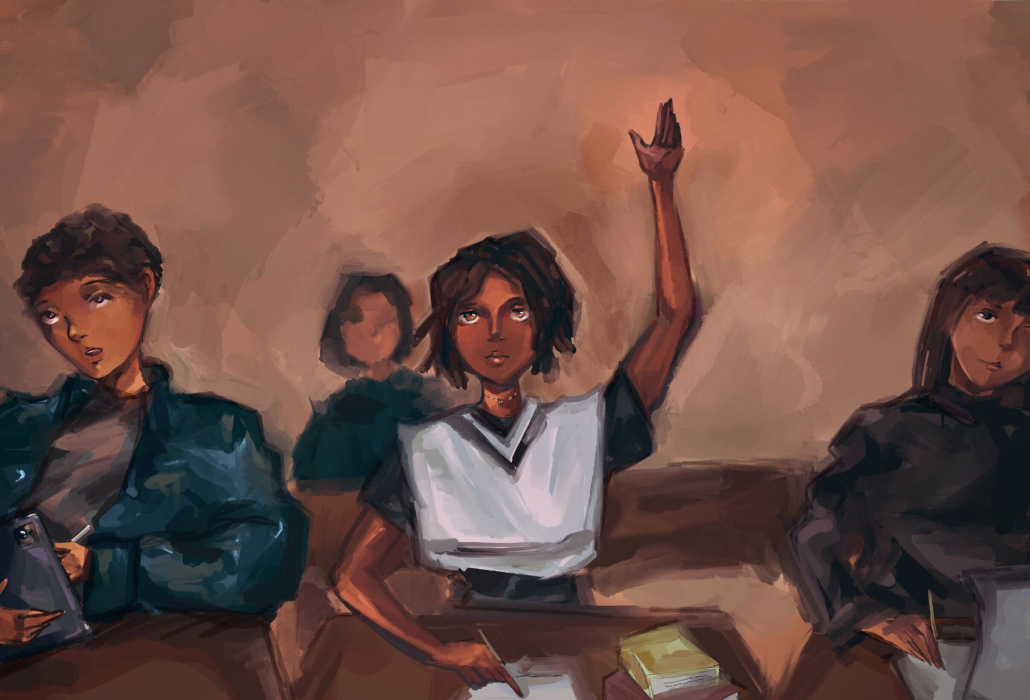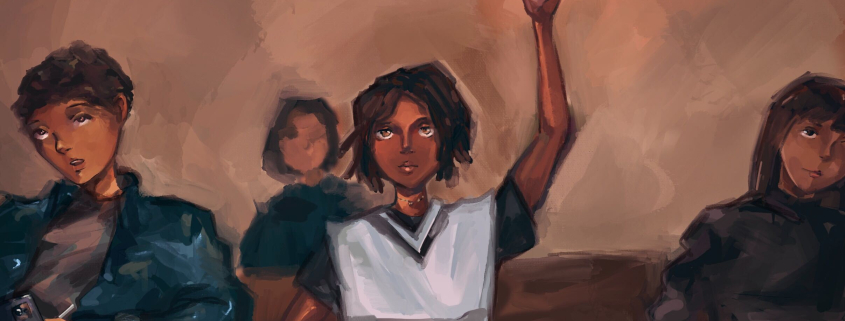Schools need an AP African American studies class

Content warning: This article contains references to racial violence and insensitivity.
This is, without a doubt, the hardest piece I’ve ever attempted to write. How do I argue a position that feels as natural to me as breathing? But, before we debate the importance of an undiluted education, I want to illustrate our current reality of crushing ignorance.
As an English major, I studied the same handful of white men over and over and over again, trying to breathe new life into stale words with each interpretive essay I wrote. In high school, I sat shaking with anger as my Advanced Placement English classmates argued that police had no choice but to profile Black people.
“They don’t have the time to treat everyone as a suspect,” one of my peers claimed.
After my family left Albuquerque for a neighboring rural town, I was relieved when I discovered a new friend. Until, during an ice cream run, she said, unprompted, “Did you know slavery wasn’t actually that bad?” Her Catholic school had taught her “all about how the North blew the issue of slavery out of proportion.”
One of the most repeated mantras at my high school was, “Everyone is born with equal opportunity to succeed.” The first time I heard it, I thought it was a joke. Then multiple teachers echoed the sentiment. And suddenly it wasn’t funny anymore. How could anyone think that we are all born with an equal chance, that success is built on nothing but effort? What about generational wealth, institutional racism, classism, sexism or ableism?
These ignorant beliefs are dangerous. They fuel destructive biases, misconceptions and prejudice. The ignorance I have observed all my life isn’t just ubiquitous, and it isn’t just suffocating — it’s stagnating. It keeps us rooted in a manufactured, oppressive environment with a thin veneer that tries to trick society into believing that it wasn’t manmade at all. That “Everyone is born with equal opportunity to succeed.”
The College Board created an opportunity to learn Black studies, but already the program appears to be in jeopardy. The framework of the AP African American studies pilot program has shifted significantly since it received fierce resistance from, most vocally, Florida Gov. Ron DeSantis, and other notable conservative politicians. Certain topics and individuals were either relegated to optional coursework or cut from the program entirely. This includes intersectionality, Black queer studies, the Black Lives Matter movement and figures like Angela Davis and bell hooks. However, the College Board is insistent that the backlash had nothing to do with the changes.
Whether these topics were removed because of politics or not, the result is the same: the curriculum has changed for the worse. I understand that it is impossible to encapsulate Black history and culture into a single course. But the newest framework is not a step in the right direction. A former teacher and current lead curator of the nonprofit organization We Are, Ronda Taylor Bullock, tells The Guardian “The changes that are happening aren’t edits – they’re the erasure of Black voices, Black academics, Black experiences. It’s cowering to white supremacy, cowering to political power, versus recognizing the academic merits of how the curriculum was from the beginning.”
When I first read about the pilot program, I rejoiced at the idea of an AP African American studies course. But when I thought about why it was necessary at all, my joy soured slightly. I am still very happy that the program has been created and proud of the people who worked hard for its development. But why are students not being properly taught Black history and Black voices in the general curriculum?
I think we all know why. Because white comfort and privilege were and are valued above an education that accurately represents this nation. Society’s racial ignorance isn’t accidental — it’s a direct product of opposing progress and institutional change.
New Jersey Gov. Phil Murphy elected to add more New Jersey schools to the AP African American studies pilot program in direct response to Gov. DeSantis’ opposition, according to the New York Times.
“We’re Americans standing up. We’ve got to tell the whole story of our country,” Gov. Murphy said.
This is the appropriate response. Not to capitulate, but to stand firm.
Change and progress often hinge on a certain level of discomfort. And despite ongoing efforts to prevent any modicum of discomfort, I hope the new AP African American studies program makes students, teachers and parents alike uncomfortable.

